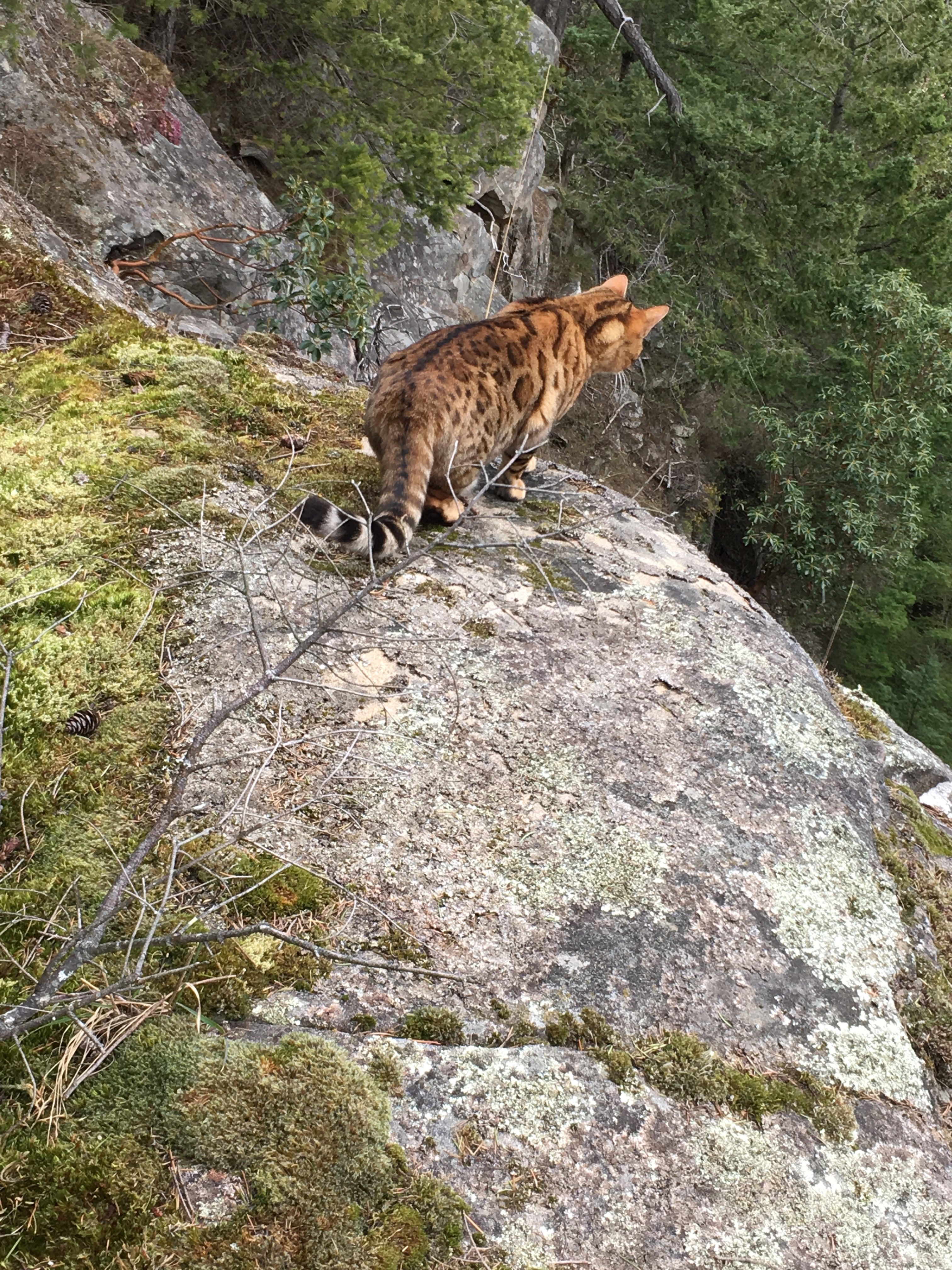December 25th, 2021
Dashiell and me and Stung

There’s enough wood stacked under this cabin to get me through the winter —contributed by two giant trees that fell during a storm two years ago. Both came within an air kiss of this cabin. A warning, maybe, of more furious storms to come, brought on by changing climate patterns.
Actually, I’d like to believe Mother Nature looked up my sheet and decided to spare my cabin. Donates to Green Party. Check. Coddles his ten acres of forest. Check. Helps wife maintain bee-friendly organic garden. Check. Central characters of his novels obsess about the fate of our planet. Check.
Their author is also paranoid about the digital revolution, which feels like a form of fascism descending, less violent, more robotic, cameras everywhere, facial recognition, every move monitored, every click registered, every appointment, reminder, and love note sitting around in some corporate Cloud. An internet haunted by hackers and trolls.
In feeble defiance, I don’t have internet in here. I do my research the old-fashioned way, with books: dictionaries, texts, field guides, a Roget, a Bartlett, a Criminal Code. Poetry. Classical mythology. I love the feel of books, the heft, the promise of substance inside, of truth. Books do not track you. You can’t fondle tweets or apps or digital maps. First among the many lies of Facebook is its name, its claim to be a book.
Once a fan of clever sci-fi, I have developed an aversion to dystopian novels, however brilliantly written, because reality — global heating, the climate emergency, Donald Trump — is already too depressing.
I have just proved — at least to myself — that a novel about the climate crisis doesn’t have to bring you down, doesn’t need to send subliminal messages of surrender and hopelessness. The novel, my twentieth, and longest, features a massive courtroom drama, the defense by legendary counsel (and self-flagellating worrywart) Arthur Beauchamp of a motley group of environmental rebels (think Extinction Rebellion).
They have raided and smashed up a plant that pumps out neonics, the pesticide that’s killing bees worldwide, decimating our songbird populations, and seeping into our food and drinking water. Beauchamp’s only defense — necessity — is as ancient as Aristotle, but has had a near-zero success rate.
Sounds apocalyptically gloomy? Not a chance. As with most of the Beauchamp series, it’s invested with great dollops of humor. It’s also peopled with eccentrics, dissidents, and mavericks. An undercover femme fatale. A juror who becomes besotted with her. A suave prosecutor who causes hearts to throb. An irascible, preening judge. A grumpy inspector whose career could end in scandal. The acid-dropping lead guitarist of a band called Panic Disorder.
And of course, there’s Arthur Beauchamp, classically trained, socially awkward, guilt-ridden at his inability to resist the advances of the local, lustful potter. Once again he is dragged reluctantly from his West Coast island idyll to strap on his guns for one more courtroom duel.
He swears this this will be his final trial, though I’m not sure of that. At any rate it will be the greatest trial of his long career, and will be watched by the eyes of the world.
Dashiell stirs and stretches. Stop dreaming, he meows, wrap it up — we have hills to climb.